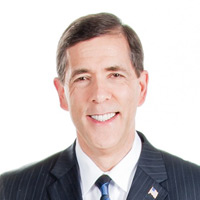A Peek Behind the Mutual Fund Curtain Reveals Cons as Well as Pros
From a cost and risk perspective, mutual funds have a lot going for them, but how well you do with your portfolio depends on how you deal with their weaknesses as well as their strengths.


Every financial vehicle comes with a string attached. Sitting in cash pays you next to nothing. The market goes way up, but it also can go way down. CDs have a time commitment. Bonds can hurt you with rising interest rates.
For the average person, this makes investing very intimidating. Not only is it challenging to pick the right amount of market risk vs. safer financial vehicles, but once you get into the nitty-gritty of asset allocation — from stocks vs. bonds, to mutual funds vs. exchange-traded funds (ETFs), to real estate investment trusts (REITs) vs. commodities — it’s not surprising many investors are just sitting in cash.
Mutual Fund Pros
Because of their simplicity, it’s no wonder mutual funds have become so popular. By pooling money from many people, these funds give investors the power to buy a number of diverse securities for a lower price than if they purchased each one individually.

Sign up for Kiplinger’s Free E-Newsletters
Profit and prosper with the best of expert advice on investing, taxes, retirement, personal finance and more - straight to your e-mail.
Profit and prosper with the best of expert advice - straight to your e-mail.
About two-thirds of all 401(k) assets are invested into mutual funds. The low-cost passive funds are becoming more and more popular with younger generations and inside of retirement plans, as reducing the fees to next to nothing can really boost your growth potential over 30 to 40 years of saving, especially when you continue to buy-in on market dips.
There are other definite benefits as well:
Easy access: Mutual funds give small investors an opportunity to own stock in multiple companies without having to do the research — or pay the high prices — required of individual investors.
Liquidity: Shares can be bought and sold easily at the end of each business day. Orders are filled after market close, so you can always make changes if you need to or want to.
Access to professional managers: Most mutual funds hire experienced money managers to oversee their accounts. These professionals are dedicated to helping investors reach their objectives and get the best returns they can.
Something for everyone: There are funds for consumers who aren’t afraid of risk, but there are options, as well, for those who prefer less risk. You can buy and hold or get in and get out. You can go big, small or middle of the road. And you can specialize in anything you can think of asset class-wise, based on your interests or objectives.
Mutual Fund Cons
But mutual funds have their downside, too. The very thing that makes them so attractive is also a negative: You’re giving up a large amount of control, which includes:
A lack of control over your portfolio: All decisions are made by the mutual fund manager. You can dump the fund any time you like, but the manager decides which securities within the fund he or she will buy and sell, and when. Managers also have limited control in that they have their set guidelines that only allow a certain level of equity exposure or cash exposure, for instance.
A lack of control over taxes: If you own a stock and sell it for a gain, you’re taxed on that gain. You know this, and you can make decisions based on how it will affect you. You can defer taxation on the appreciated value of your stock shares if necessary.
With a mutual fund, you’re taxed when the fund distributes gains it made selling individual holdings — even if you haven’t sold your shares (unless it’s a Roth IRA, traditional IRA or 401(k) or similar plan). Those capital gains distributions can become a costly and consistent problem if your fund sells holdings frequently. Losses can also be less tax efficient for mutual fund investors. Unlike holding individual securities, a mutual fund structure does not allow for losses on individual fund holdings to be offset against ordinary income for tax purposes.
A lack of control over costs: All mutual funds charge annual expenses, expressed as a percentage: the annual expense ratio. These costs generally are listed in the fund’s prospectus. But what they aren’t required to tell you about are the trading costs buried in the internal workings of each individual fund.
Each time a mutual fund manager buys a security, which is called turnover, the fund incurs a small trading cost. This cost is not factored into the expense ratio and is what we call a “hidden cost,” because you don’t see it.
The Bottom Line
So what does all this mean to you?
Mutual funds have their benefits, but you still have to do some homework before investing in them. When constructing a portfolio, there are three basic considerations you need to keep in mind:
- Know your risk. Set a plan, and don’t let fear or greed cause you to get in or out of the market.
- Find funds that won’t eat into your return with high hidden costs.
- Remember to rebalance your portfolio periodically.
After you’ve done your homework, if you find a fund that suits you, it can be a great way to get into the market and start investing.
Richard W. Paul is the president of Richard W. Paul & Associates, LLC, and the author of “The Baby Boomers’ Retirement Survival Guide: How to Navigate Through the Turbulent Times Ahead.” He is an Investment Adviser Representative and insurance professional.
Kim Franke-Folstad contributed to this article.
Richard W. Paul & Associates, LLC, is a Registered Investment Adviser. Advisory services offered through Richard W. Paul & Associates, LLC. Insurance services offered through Midwest Financial Consultants, Inc. The aforementioned are affiliated companies.
Get Kiplinger Today newsletter — free
Profit and prosper with the best of Kiplinger's advice on investing, taxes, retirement, personal finance and much more. Delivered daily. Enter your email in the box and click Sign Me Up.

Richard W. Paul is the president of Richard W. Paul & Associates, LLC, and the author of "The Baby Boomers' Retirement Survival Guide: How to Navigate Through the Turbulent Times Ahead." He holds life and health insurance licenses in Michigan and Florida and is a Certified Financial Planner, Registered Financial Consultant, Investment Adviser Representative and insurance professional.
-
 5 Historic Philadelphia Homes for Sale Now
5 Historic Philadelphia Homes for Sale NowPhiladelphia is a goldmine of historic properties that rival the best in New York, London and Paris for charm and opulence. Here are five gems you can own.
By Charlotte Gorbold
-
 When to Sell Your Stock
When to Sell Your StockKnowing when to sell a stock is a major decision investors must make. While there's no one correct answer, we look at some best practices here.
By Charles Lewis Sizemore, CFA
-
 Within Five Years of Retirement? Five Things to Do Now
Within Five Years of Retirement? Five Things to Do NowIf you're retiring in the next five years, your to-do list should contain some financial planning and, according to current retirees, a few life goals, too.
By Evan T. Beach, CFP®, AWMA®
-
 The Home Stretch: Seven Essential Steps for Pre-Retirees
The Home Stretch: Seven Essential Steps for Pre-RetireesThe decade before retirement is the home stretch in the race to quit work — but there are crucial financial decisions to make before you reach the finish line.
By Mike Dullaghan, AIF®
-
 Three Options for Retirees With Concentrated Stock Positions
Three Options for Retirees With Concentrated Stock PositionsIf a significant chunk of your portfolio is tied up in a single stock, you'll need to make sure it won't disrupt your retirement and legacy goals. Here's how.
By Evan T. Beach, CFP®, AWMA®
-
 Four Reasons It May Be Time to Shop for New Insurance
Four Reasons It May Be Time to Shop for New InsuranceYou may be unhappy with your insurance for any number of reasons, so once you've decided to shop, what is appropriate (or inappropriate) timing?
By Karl Susman, CPCU, LUTCF, CIC, CSFP, CFS, CPIA, AAI-M, PLCS
-
 Before You Invest Like a Politician, Consider This Dilemma
Before You Invest Like a Politician, Consider This DilemmaAs apps that track congressional stock trading become more popular, investors need to take into consideration some caveats.
By Ryan K. Snover, Investment Adviser Representative
-
 How to Put Together Your Personal Net Worth Statement
How to Put Together Your Personal Net Worth StatementNow that tax season is over for most of us, it's the perfect time to organize your assets and liabilities to assess your financial wellness.
By Denise McClain, JD, CPA
-
 Bouncing Back: New Tunes for Millennials Trying to Make It
Bouncing Back: New Tunes for Millennials Trying to Make ItAdele's mournful melodies kick off this generation's financial playlist, but with the right plan, Millennials can finish strong.
By Alvina Lo
-
 Early-Stage Startup Deals: How Do Convertible Notes Work?
Early-Stage Startup Deals: How Do Convertible Notes Work?Some angel investors support early startups by providing a loan in exchange for a convertible note, which includes annual interest and a maturity date.
By Murat Abdrakhmanov